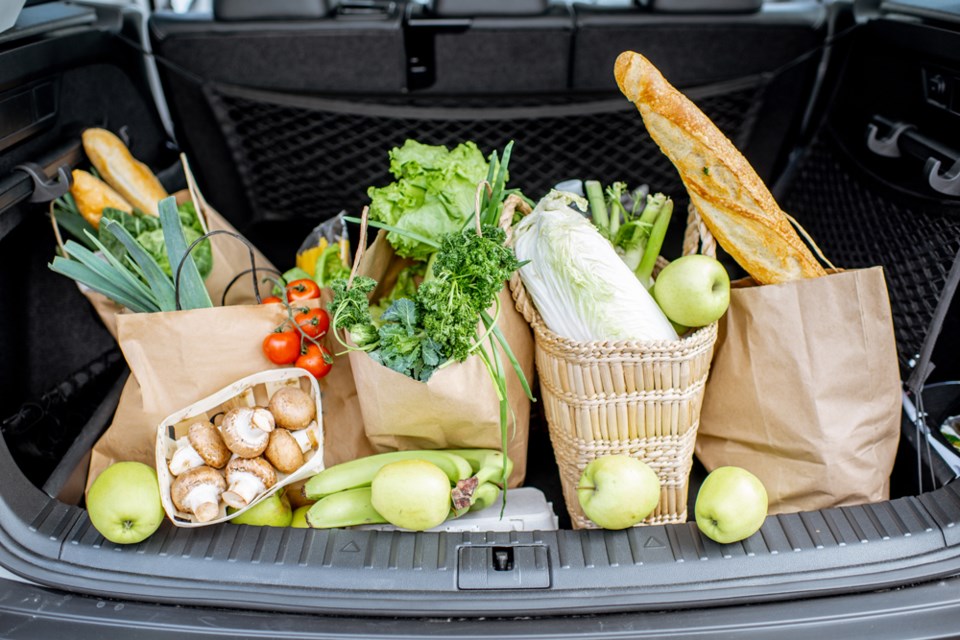In the list of the United Nations’ 17 sustainable Development Goals (SDGs), food security issues rank second. Adopted by all member states — including Canada — the SDGs inform the work of many public health and community development organizations around the world in their mission-based work to improve people’s lives, health and wellness.
Of course, food security is an issue right here at home. Roughly one in five Canadian households — including more than two million children — live without enough access to affordable and nutritious food. First Nation communities are food insecure at a rate three to five times higher than the general population; and the issue is especially acute in rural and remote locations.
Structural drivers, economic hardship, lack of access and increased prices all play a role. For 2025, the Canada Food Price Report predicts a five-per-cent increase in food costs. While some people can afford to change how they purchase groceries and opt for products made in Canada, this is not the reality for many. This crisis will only deepen with the U.S. trade war and resulting economic strife.
Chronic food insecurity is a critical public health problem because it impacts lifetime health. Those living in food-insecure households are more likely to experience greater levels of infectious diseases, diabetes and heart disease. Children exposed to severe food insecurity have a greater risk for depression and suicidal ideation as young adults.
Policy barriers limit self-determination and economic development for First Nation food production. Consider the prejudicial permit provision in the Indian Act that favoured settler farmers and growers over First Nations by making it illegal for First Nations to sell agriculture products grown on reserve and required a permit for First Nations to simply buy groceries off-reserve. Not until the 2014 Tsilhqot’in Nation Supreme Court of Canada decision were First Nations given the right to decide how their land was used as well as the right to the economic benefits of their land.
When First Nations are given equal opportunity, everyone benefits. Indigenous businesses contribute over $50 billion annually to Canada’s GDP, and B.C. is home to the second-largest number of Indigenous entrepreneurs in the country. In the food and agriculture sectors, many First Nation businesses prioritize sustainable and traditional farming and harvesting practices, improving the sustainability of the environment and food systems, with lessons for all.
First Nations are improving the lives of their people through new strategies for food sovereignty — the right to define and shape one’s own food and agriculture systems. Progress is being made on reclaiming traditional practices of growing food, hunting and fishing, along with investments in solar-powered greenhouse operations and novel water conservation. First Nations are bringing food production — and therefore better health — closer to home. This can help, but not eliminate, the trade war’s impact on access and costs.
FNHC’s advocacy has enabled new land-based healing programs through a mental health and wellness agreement with B.C., several of which include food production. In Tea Creek, an Indigenous-led food sovereignty and trades-training initiative is building economic independence. The Heiltsuk Nation’s aquaponics demonstration project in Bella Bella uses nutrients from fish to grow produce.
First Nations bring deep knowledge about land and resource stewardship, which has enabled our survival since time immemorial through natural disasters, wars, disease outbreaks — even trade disruptions. Our approach draws upon thousands of years of interconnectedness and a belief in the wisdom of community-based solutions to tough issues.
In the face of a trade war, we’re all talking about Canadian sovereignty. It’s a good time to remember that First Nations sovereignty and the right to self-determination are guaranteed in the Canadian Constitution. With thousands of years of history, First Nations offer a perspective on environmental stewardship and sustaining the food and resources that come from the land. Our job is to advocate for increased action on food sovereignty and expansion of proven models across B.C.
Wenecwtsin (Wayne Christian) is deputy chair of the First Nations Health Council.



